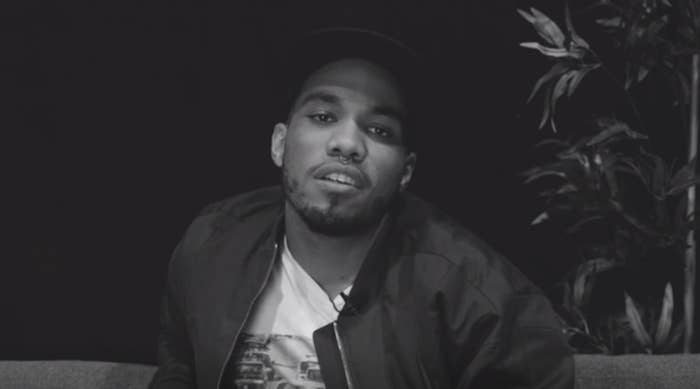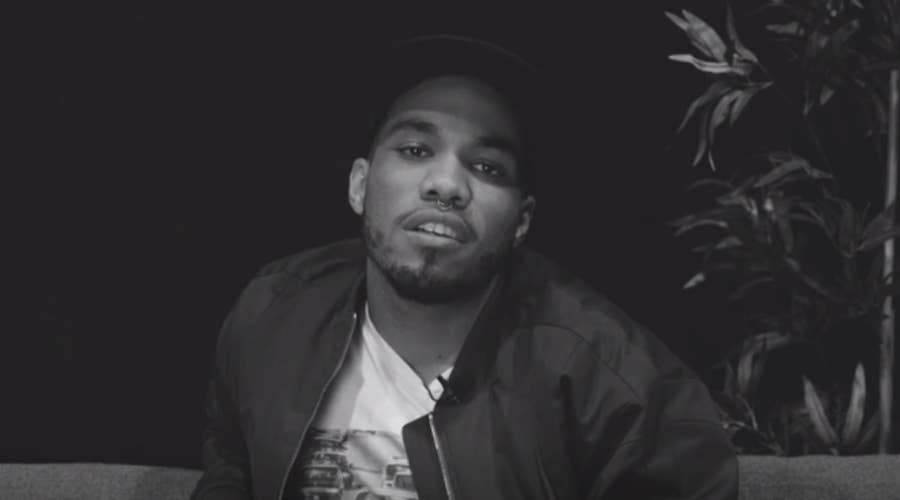
Anderson .Paak and his ear-candy infusions of swaggering hip-hop and neo-soul have broken out on the contemporary music scene in increasing force over the past two years. Now, just a few months after the release of the official video for “Come Down” off third solo album Malibu, he’s cemented as a face of modern hip-hop/pop. Malibu peaked at ninth on American R&B charts, and he and his band The Free Nationals start an international tour supporting Bruno Mars this May.
Part of .Paak’s success has been his keen release strategy. After putting out Venice in 2014 to modest acclaim, he was featured heavily on Dr. Dre’s Compton, and almost immediately followed up with Malibu. Suddenly, his distinctively sweet rasp was everywhere. Since Malibu he’s dropped his long awaited collaboration with producer Knxwledge, dubbed NxWorries, and has a feature on A Tribe Called Quest’s We got it from Here... Thank You 4 Your service, among other activities.
Paak’s strategy backs up his talent, and both are rolled into his clearest asset: the distinct image he’s created for himself through his lyrical ability. I remember remarking to a friend after a first listen to Venice that Paak’s first impression was ‘Frank Ocean, but meaner.’ Dispositions changed somewhere on the trip between Venice and Malibu, where .Paak keeps the confidence and sexual enterprise of Venice, but manages to come through all the more likable for it— if his voice is raw and lyrics saucy, his impact is joyous, and he lands squeaky clean.
That’s the trade-off of Anderson Paak’s style. Moving in places between rap and soul, his flows alternate between the two genre’s hang-ups: male ego and misogyny on the one side, relationships and honest heartbreak on the other. The electrifying thing about .Paak is how holistically he fuses the subjects in a lyrical style that seems completely natural to his actual personality. Lyrics are the way musicians present, perform, and mythologize themselves, and .Paak’s endear us to a lifestyle we truly feel as his. “I hate the club, but I make the club when I walk into it” he sings on “Drugs,” off Venice. “No love is greater/ in this whole world, we made up/ this love” he continues, allowing pauses to craft the lines’ double meaning, and splitting it right down the divide of his aesthetic. Just as his vocal capabilities lend themselves equally to rap and sung melodies, the songs’ content walks a line between soulful expression and hard, hard game. We see .Paak as a player with heart, and incredible articulateness.
Singing with a trademark half smile, it’s almost as if .Paak is constantly half-apologizing for his own amazing chops. “Am I Wrong?” he asks, (on Malibu) to “call you a bitch”—(he finishes on “Suede,” a NxWorries track)? Well, “it’s because you’re my bitch. And as long as no one else calls you a bitch. We ain’t gonna have no problems. Now, if I call you a trick...” The hook is simultaneously off-putting and attractive. .Paak’s style is flirtatious, like when a dude insults a girl to let her know he’s interested.
The charm .Paak projects wouldn’t be possible without his strong sense of slang. The toast of Paak’s command of modern argot comes spread in “Milk N’ Honey,” off Malibu.” .Paak stays in the same medially split staccato rhythm for each of the song’s rap verses, emphasizing almost every clause’s end with one form of lingo or another. “She said ‘Hop in this whip,’ I said ‘Bitch, you the feds’ She said ‘Baby, don't trip,’ then she rolled me a spliff, showed me pics of her kids, and she slipped me some bread.” The song is one of Paak’s most brilliant and memorable raps, reveling in the exchange of one kind of language for another. The exchange of words for other words is of course also the main drama of the ‘he said’ ‘she said’ based song, which ends with the speaker deciding whether or not to come clean to police that neither he nor his partner is who they claim to be.
The emphasis on modern language in every one of his lyrical works shows .Paak, again, as an artist interested in styling himself as particularly equipped to the modern game. The songs deliver classic love subjects in an updated language, and while its clear .Paak enjoys his own swagger, he also seems more aware of and ready for the pitfalls of romance than any generation of musician prior. The fluidity of the language itself signals this: the ease of slang’s appearance shows its meaninglessness as a social structure, its elasticity. It gives the lie. “I Miss That Whip” is a song that uses the metaphor of a car to express his grief over losing a partner—a classic structure done with all the more ease for its familiarity. It’s one of the few songs he doesn’t sing directly to one girl or another, but out to the general listener. .Paak creates himself as the newest incarnation of soul by playing on its more recognized qualities and updating them with just the right amount of fuckboy.
The interplay of Paak’s separate senses of language, and his facility slipping between the roles of the promiscuous player and the soulful chanteur, makes him into the very character of modern engagement. Sometimes the switches between one side of romance to the other are less than majestic—“No matter what broad you bangin'/ You know who you love in the end,/ And I can't disagree”— but they are always lightning quick. Over the space of a single song, multiple times over the space of an album, an image of .Paak as a happily romantic, artistically honest, and incredibly smooth individual consistently emerges. Modern love exists in the exchange between two languages and happens faster than ever.
The space of the song, like the space of romance, for .Paak, is a magical place. In the dynamism of a moment, anything can be said, and anything can be accomplished. As he says, “I never wanna waste your time.” His music and his appeal lives in that moment: “We’ll dance until the song’s done.” It’s music, one of the last strongholds in which being politically incorrect is still acceptable, and .Paak thrives in the dance with that limit.

